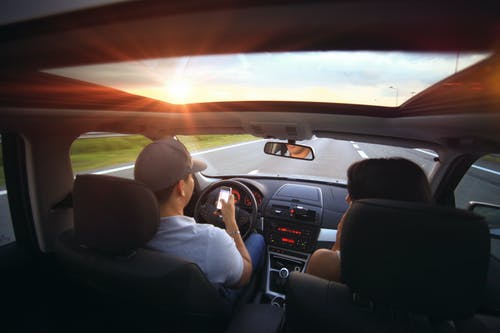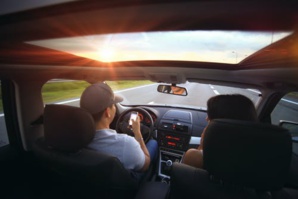By next year’s spring, UK may have hands-free driving cars rolling in their streets, informed the government following its launch of a “consultation on the technology”. The “Department for Transport” has asked for “evidence into automated lane keeping systems”, in short “ALKS”.
The above mentioned system is responsible controlling the movements of the car whereby enabling the car to stay on lane for “extended periods”. However, driver needs to be present to “take back control” anytime if need be. According to the “Society of Motor Manufacturers and Traders” this technology could help in bringing down the number of road accidents.
The technology can handle the car speed upto “70mph”, reported Dft, whereby abolishing the need to go through “long stretches of tedious motorway driving”. The “United Nations Economic Commission for Europe”, in short UNECE, has given green signal to ALKS.
However, the government of the U.K. would like to hear from the motoring industry insiders about the safety measures to keep in mind to “implement the technology” by 27 October, before taking a decision. Changes will also reflect in legal framework before introducing the systems.
According to BBC:
“The call for evidence will also look at whether ALKS-enabled cars should be classed as automated, meaning the technology provider rather than the driver would be responsible for safety while the system is engaged”.
While, the transport minister, Rachel Maclean stated:
“Automated technology could make driving safer, smoother and easier for motorists and the UK should be the first country to see these benefits, attracting manufacturers to develop and test new technologies.”
The C.E.O at the “Society for Motor Manufacturers and Traders”, Mike Hawes is of the opinion that the systems would be “life changing” whereby potentially preventing “47,000 serious accidents” in the coming decade. Similarly, the President of AA, Edmund King also supported the move as a measure of making “roads safer”.
References:
bbc.com
The above mentioned system is responsible controlling the movements of the car whereby enabling the car to stay on lane for “extended periods”. However, driver needs to be present to “take back control” anytime if need be. According to the “Society of Motor Manufacturers and Traders” this technology could help in bringing down the number of road accidents.
The technology can handle the car speed upto “70mph”, reported Dft, whereby abolishing the need to go through “long stretches of tedious motorway driving”. The “United Nations Economic Commission for Europe”, in short UNECE, has given green signal to ALKS.
However, the government of the U.K. would like to hear from the motoring industry insiders about the safety measures to keep in mind to “implement the technology” by 27 October, before taking a decision. Changes will also reflect in legal framework before introducing the systems.
According to BBC:
“The call for evidence will also look at whether ALKS-enabled cars should be classed as automated, meaning the technology provider rather than the driver would be responsible for safety while the system is engaged”.
While, the transport minister, Rachel Maclean stated:
“Automated technology could make driving safer, smoother and easier for motorists and the UK should be the first country to see these benefits, attracting manufacturers to develop and test new technologies.”
The C.E.O at the “Society for Motor Manufacturers and Traders”, Mike Hawes is of the opinion that the systems would be “life changing” whereby potentially preventing “47,000 serious accidents” in the coming decade. Similarly, the President of AA, Edmund King also supported the move as a measure of making “roads safer”.
References:
bbc.com






